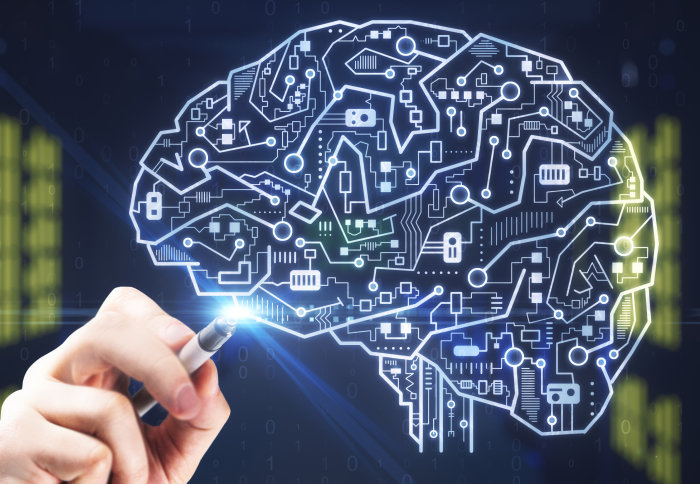Engineering for a data-driven world: new MSc gets hands-on with machine learning
by Jane Horrell

The Department of Electrical and Electronic Engineering has launched a specialist one-year degree in Applied Machine Learning starting in autumn 2020.
Electrical and information systems engineers have a key role in the machine learning revolution that is shaping our lives. From autonomous vehicles to the Internet of Things, we are at the heart of these exciting technologies.
Our new MSc in Applied Machine Learning has been developed to equip graduates with the blend of advanced theory, industry-relevant knowledge, and hands-on engineering practice to make an impact in this fast-developing field.

MACHINE LEARNING IN ENGINEERING
Machine learning lets us analyse patterns in the vast amounts of data and signals generated by electronic and information systems.
Using a computer learning algorithm, a computer can find these patterns on its own, and incorporate what it ‘learns’ in order to improve its further decision making.
Engineering applications of machine learning are limitless — from robots that can learn how to assist a person with restricted mobility, to electrical power networks which can anticipate periods of peak demand.
The one-year Master’s degree teaches the skills needed to design, implement and evaluate machine learning systems across applications such as robotics, communications, speech and vision.
“We aim to train highly-skilled professional engineers with advanced knowledge of machine learning who can seize the opportunities given by machine learning, ready for a diverse range of careers creating and improving real-life products and services.” Dr Krystian Mikolajczyk Course Director, MSc Applied Machine Learning
Course Director, Dr Krystian Mikolajczyk says the MSc is ideal "if you’re interested in technologies involving hardware, systems, sensors and signals, and if you would like to innovate and design new systems with intelligent, efficient algorithms that can harness the potential of the information.”
Industry-ready
As machine learning expands, the opportunities continue to grow for professional engineers with the skills to work in related careers. The course has been developed with input from industry specialists to help ensure our graduates are industry-ready.
Pete Harrod is the Director of Functional Safety at Arm, and Royal Academy of Engineering Visiting Professor in the Department: "Machine Learning has the potential to impact every aspect of our lives — and this includes our own engineering practices. As the complexity of the solutions we’re developing goes up, we’re using ML algorithms to make improvements in areas such as verification and quality. For ML to reach its full potential, it’s imperative we make the tools and knowledge available to put ML in the hands of every innovator.”
Bernard Tenbroek, Director RF IC Design, Mediatek: “Machine Learning is an exciting and rapidly growing field with many applications in smart IoT devices and cloud computing. This MSc offers a solid theoretical background and a great focus on applying this technology in real word systems.”
Key features of the MSc in Applied Machine Learning
- advanced core modules in machine learning and deep learning,
- research-led electrical engineering modules in communication systems and advanced signal processing techniques,
- a specialised computer laboratory, designed to provide students with the practical skills of building a complete system and training in the relevant industry-standard design tools and programming environments,
- a substantial individual research project that aims to give students a challenging opportunity to demonstrate their skills and knowledge in real applications.
The programme aims to provide students with the confidence to approach complex issues systematically and creatively, underpinned with a critical awareness of the current issues in machine learning.
An interdisciplinary teaching team
Machine Learning is recognised as an exciting and very active research area. The department has long-term support for relevant research, for example, through the award of a 10-year Royal Academy of Engineering Chair in Emerging Technologies to Professor Yiannis Demiris, to investigate machine learning and AI for personalising the assistance that robotic devices can provide to human users.
“In the Intelligent Systems and Networks group, we are fortunate to be an interdisciplinary team of faculty and researchers that can combine their diverse expertise in machine learning, artificial intelligence, computer vision, communication networks, robotics, and neuroscience to solve the complex large-scale challenges we face in today’s world. This experience funnels into the classes and teaching material used in this course. We strongly believe in the integration of teaching and cutting-edge research, and MSc students are given opportunities to take part in these efforts through their projects.”
Professor Yiannis Demiris, Head of Intelligent Systems and Networks, Department of Electrical and Electronic Engineering.
Find out more about the course, and apply now for October 2020
Article text (excluding photos or graphics) © Imperial College London.
Photos and graphics subject to third party copyright used with permission or © Imperial College London.
Reporter
Jane Horrell
Department of Electrical and Electronic Engineering